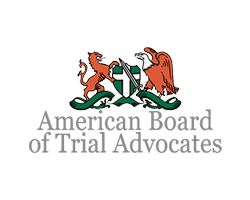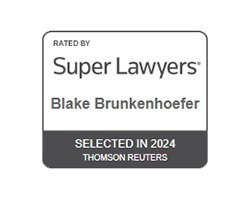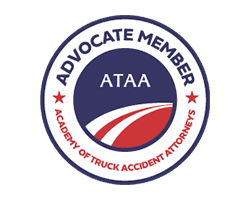
Corpus Christi Inadequate Security Lawyers
If you or a loved one has suffered an injury due to a lack of adequate security on someone else’s property, you may be entitled to financial compensation for your suffering. The lawyers at Brunkenhoefer, P.C. Injury Attorneys are here to help you understand and fight for your legal rights. You should be able to feel safe and secure at any place or event you go to, and property managers need to ensure that there is adequate security to make sure nobody gets hurt. If a property owner’s negligence created conditions for an injury or assault to go undetected, they should be held accountable.
If you are a victim of such negligence, don’t hesitate to contact Brunkenhoefer, P.C. Injury Attorneys today at (361) 310-5299 to learn more about your legal rights.
Do I Need an Inadequate Security Lawyer?
The legalities of premises liability as it relates to inadequate security are extremely complicated, especially for a layperson to understand. There is no cut and dry security requirement; it depends on the kind of business, where it’s located, and if there are external factors that should be accounted for. The laws can be highly subjective, which is why you need an experienced lawyer on your side so that your case can be as strong as possible. A good lawyer will have a deep knowledge of all the laws involved, access to resources to conduct a thorough investigation of the details surrounding your case, and experience fighting similar cases to ensure that yours will be successful. Simply put, you are more likely to have a successful case fought by a lawyer than if you tried to do it on your own. And while you leave your case to the professionals, you will be able to focus on what is most important: your recovery.
Why Choose Brunkenhoefer, P.C. Injury Attorneys to Handle My Case?
For over 50 years, Brunkenhoefer, P.C. Injury Attorneys has been representing the Corpus Christi community in their personal injury cases. We understand how difficult it can be to recover from a serious injury – physically, emotionally, and financially. The medical bills from your treatment can quickly add up, especially if there are health complications or a long recovery that requires some sort of rehabilitation program. If you were injured because you were attacked on someone else’s property, there may also be a strong emotional component to your suffering. Brunkenhoefer, P.C. Injury Attorneys understands that you don’t want a legal battle on top of everything you’re already dealing with. We treat you with the empathy you deserve while we fight your case because we firmly believe that you should get all of the financial compensation you are legally entitled to. We’re confident in our abilities to get you a successful case outcome, which is why you don’t pay us anything until we win.

What Are Inadequate Security Laws?
When you have an inadequate security claim, you are attempting to prove that a property owner is liable for your injuries for failing to provide appropriate security on their premises.
The kind of security that a property owner should include the following:
- Interior Security: A property owner should have effective security measures inside the building, like cameras or security personnel.
- External Security: A property owner should have a security system in place as well as adequate lighting in parking and access areas around the building.
- Employee Security: A property owner or business owner is responsible for vetting job applicants and conducting background checks on employees, and training employees to recognize and report any suspicious activity.
- Administrative Duty: A property or business owner should maintain a system of reporting and recording information about criminal activity on or near the premises.
Business owners owe their patrons what is legally called a “duty of care” that they must maintain for the premises to remain in a safe condition. The duty of care will vary depending on a variety of factors.
Some basic factors that the court considers when they determine if security was adequate at the time of your injury include:
- Nature of the Business on the Premises: Some businesses would inherently require more security than others. A bar or a music venue that involves alcohol sale would require more security than a gym or a retail store, for example.
- Crime Statistics in the Area: If a business is located in an area with a statistically high crime rate in the last few years, then extra security measures are necessary for the safety of its patrons. This is especially true when the property owner has direct knowledge of any high crime rates.
- Location of the Incident: If an injury or assault occurs in a highly populated or high-traffic area of the premises, like the entrance or a large shared space, then there is a greater chance that an owner will be held liable than if it occurred in a remote area like a parking lot or alleyway behind the building.
There are specific factors that contribute to security, and if any of these could have prevented your injury or attack, then the property owner could be held liable:
- Inadequate security personnel
- Inadequate lighting in or around the building, including parking lots or parking garages
- Lack of sufficiently-trained staff
- Inadequate control of keys in residential areas
- Absence of security cameras or disabled security cameras
- Failure to remove suspicious or difficult persons
A lawyer will be able to conduct a full investigation and make a strong case whether or not a property owner could have prevented your injuries by providing better security measures.
Premise Liability Frequently Asked Questions
Our firm is deeply dedicated to serving our community. At Brunkenhoefer, P.C. Injury Attorney, we understand that you may be going through an incredibly difficult time after you or a loved one has been hurt on someone else’s property. In an effort to best serve our community, here are the answers to some questions we commonly hear at our firm:
-
What is negligence?Negligence is when someone through action or inaction fails to act in a way that is considered reasonable. For premises liability injury law, this means that the landowner failed in the upkeep of their land. They are deemed negligent if they have allowed their property to fall into a state of hazard that a reasonable person would not allow.
-
What if I am partially to blame?The state of Texas follows modified comparative negligence laws. This means that a court will rule on how much blame the victim and landowner each hold as a percentage. If the court rules that the victim is 10% responsible for the injury, they can recover up to 90% of the potential damages. If the court finds the victim to be 51% responsible or more, the victim cannot seek compensation.
-
What is duty of care?A property owner owes anyone who may be on their land a ‘duty of care.’ What this means is that the property owner must keep their land safe within reasonable standards. The law classifies anyone who may enter a property into 3 categories. They are an invitee, licensee, and trespasser. The owner’s duty of care is different to each one of these categories. An invitee has the most protection from hazards on the property. An owner is only liable to a licensee if the landowner knew the safety risk existed and the licensee is likely unaware. Trespassers have no legal protection unless they are a minor.
-
How long do I have to file a case?If you or a loved one has been injured or killed in a premises liability accident you have 2 years to file a case. These lawsuits would fall under personal injury or wrongful death and must be filed within 2 years of the injury or death date. In Texas, if you are filing a lawsuit against a government body, you must file within 6 months of the injury date. You must also file a notice with the specific governmental body. A qualified attorney can help you follow all guidelines and filing rules.
-
What types of compensation are available?
If you have suffered an injury on someone else’s property, you may be entitled to a variety of compensation types. For a personal injury lawsuit you can collect damages for the following:
- Pain and suffering
- Medical expenses
- Mental suffering
- Loss of wages
- Impairment or disfigurement
If you have lost a loved one in a premises liability accident, you may be able to collect compensation on their behalf. Wrongful death compensation types include:
- Loss of wages
- Loss of inheritance
- Emotional pain of survivors
- Loss of companionship

Why choose our firm our unique approach sets us apart from other firms

-
Trial-Tested & ReadyWe prepare every case as if it's going to trial.
-
Accessibility RedefinedWe believe in open communication and responsiveness. You can contact your attorney 24/7.
-
Client-Centered ApproachYour needs and well-being are at the forefront of everything we do.
-
Embracing TechnologyWe leverage technology to enhance your experience.
-
Champions of Diversity in South TexasWe are committed to advocating for all individuals, regardless of their background.

Contact a Lawyer Today
You should not have to suffer because you were injured or assaulted on another person’s property. It is their responsibility to ensure your safety on their property and they deserve to be held accountable for their negligence. It’s always a good idea to see whether you are legally entitled to any kind of compensation.
The premises liability lawyers at Brunkenhoefer, P.C. Injury Attorneys are here to help you explore your legal options. Call us today at (361) 310-5299 to discuss the details of your case in a free consultation.
















